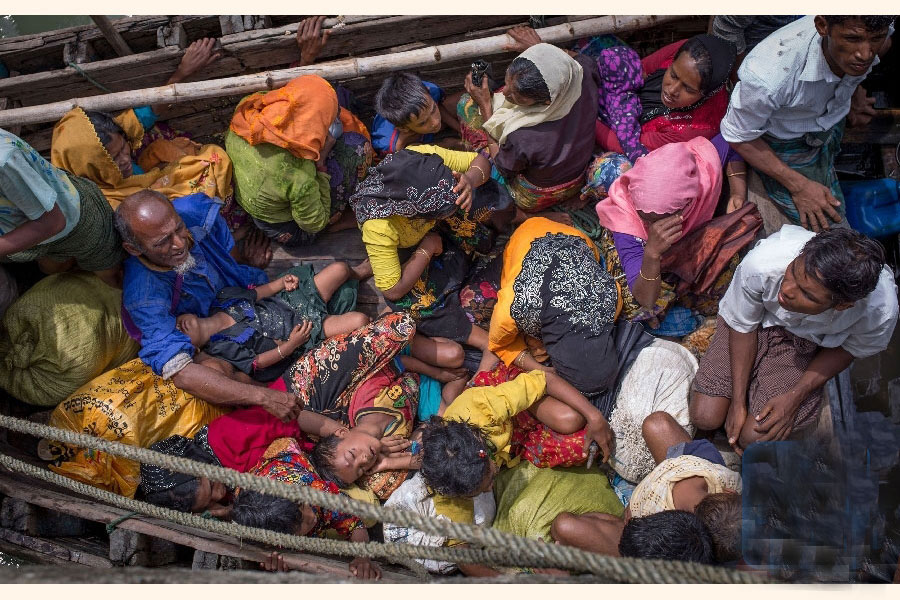

The Myanmar government's confirmation of 180,000 Rohingya's eligibility for repatriation from Bangladesh offers a glimmer of hope for the long-stalled Rohingya repatriation process which has been mired in global political complexities for the past eight years. Myanmar has also stated that the final verification of another 70,000 refugees is pending further review of photographs and identity details. Additionally, they have pledged to expedite the verification process for the remaining 550,000 names on the original list. This list, comprising 800,000 Rohingya, was submitted by Bangladesh to Myanmar in six batches between 2018 and 2020. However, the actual number of Rohingya refugees living in the overcrowded camps of southeastern Bangladesh, the world's largest refugee settlement, is about 1.2 million. These beleaguered people were forced to flee their homeland in the face of repeated military crackdowns, ethnic cleansing, religious intolerance and the systematic denial of fundamental civic rights, including citizenship. The ethnic people also as Muslim minority living in Rakhine state have periodically been persecuted and extirpated from their ancestral land on which they have become "foreigners". The first wave of the Rohingya arrived in Bangladesh in 1979 and with continuation of the process, the largest exodus happened in 2017, following what the United Nations called a "textbook case of ethnic cleansing" by Myanmar.
Now, after all these years the Myanmar government's confirmation of a certain number of refugees 'eligibility' to return out of 1.2 million may seem somewhat disturbing and disappointing. But this could signal the beginning of the long-awaited repatriation process, provided the Burmese government's commitment is genuine and sincere. The timing of this admission, coinciding with the BIMSTEC summit, raises the possibility that it is merely a face-saving measure at an international conference. As one Rohingya refugee aptly stated in the media, "After all these years, they are confirming only 180,000 names. This feels like nothing more than an eyewash. We want a genuine solution. Myanmar must take all of us back-not just a selected few-and they must ensure we return with full rights, dignity, and citizenship. Without that, this process means nothing to us." This sentiment reflects the deep-seated distrust among the refugees.
Nonetheless, Bangladesh must capitalise on this development by demanding a specific action plan from Myanmar regarding the repatriation process. Given that repatriation must be voluntary, both governments and the international community must prioritise creating an enabling environment. This includes addressing the root causes of the crisis, such as granting citizenship, ensuring the safe and sustainable return of the Rohingya to their homes by fostering a conducive environment, and implementing confidence-building measures. It is crucial to learn from past failures; attempts to initiate repatriation in 2018 and 2019 were unsuccessful due to the refugees' fear of persecution. Now, the situation has become all the more complex because Myanmar military lost control of the 90 per cent territory of the Rakhine state to the rebel Arakan Army. While this remains an internal matter of Myanmar, Bangladesh must engage in dialogue with the Arakan Army to establish a safe corridor for the repatriation of the Rohingya. If necessary, the United Nations should deploy a peacekeeping mission in Rakhine to ensure stability in the region. Simultaneously, a UN-led post-repatriation campaign in the Rohingya's ancestral homeland would encourage those currently sheltered in Bangladesh to return voluntarily. Bangladesh should no longer be expected to bear the burden of a crisis it did not create.


 For all latest news, follow The Financial Express Google News channel.
For all latest news, follow The Financial Express Google News channel.